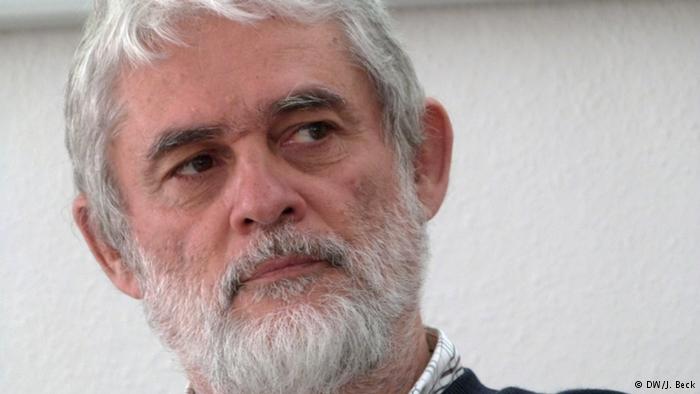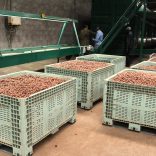Mozambique may be banned from international forest trade - AIM
“There has never been a Mozambican agrarian policy” – João Mosca

DW (file photo) / João Mosca
The economic and financial crisis has brought to the fore Mozambique’s structural problems.
When President Filipe Nyusi and his executive repeat that Mozambique imports more food than it produces, they acknowledge that the land policies that successive governments have implemented have not worked.
“I think there has never been a Mozambican agrarian policy,” economist João Mosca says, while Professor Rafael Uaiene says he is “sure that appeals to increase productivity will not work all by themselves”.
“Food Production, Structural Transformation and Diversification of Mozambique Economy” was the subject of a round table organised by the Observatory of Rural Areas (OMR) and the National Union of Farmers (UNAC) which brought together farmers, growers, academics and businessmen in Maputo on 24August.
Doctor of agricultural economics and rural sociology and OMR director and researcher João Mosca began by declaring: “There is a trend lately to demonstrate that agriculture is well,” while going through his slides illustrating official statistics which showed that domestic production of corn, rice, beans and peanuts does not cover the basic food needs of Mozambicans.
“According to FAO Mozambique, global agricultural productivity has declined,” he added, concluding that “there has never been a Mozambican agrarian policy”.
The Big Five: Institutions, Investment, Infrastructure, Innovation and Incentives
In turn Rafael Uaiene, Professor of International Development, Agriculture, Food and Economic Resources at the University of Michigan, said he is certain that the government’s call to increase productivity “will not work” to increase the production of more food for Mozambique on its own.

According to the academic, there is a lack of innovation in national agriculture, state institutions are extremely weak, investments and incentives are few and there is almost no infrastructure.
“Our research and extension system is in the doldrums, we know, and one of the great problems we have seen is the lack of seed producers and technologies from the public research system either in quantity or quality” Uaiene explained.
Professor Uaiene also explained that the incentives that the government has given to agriculture do not benefit farmers, who are mostly responsible for food production, citing as an example the subsidy on diesel that “small producers are unable to access, because they are not formally registered”.
“Who among the peasants uses electricity and so benefits from reduced energy fees?” he asks.
“One of the big problems we have in this country is that while statistics indicate that small producers are those that are engaged in food production very little is done in terms of support to those farmers. We are trying to emulate large farms that are definitely bringing other problems, bringing technology, yes, but also land and unemployment problems,” he said.
“I hope that we have passed the El Dorado Tete and Palma fever”
Without claiming to present ready-made solutions, Professor Uaiene said: “On the one hand, we need rapid growth, a strategy that generates rapid growth and poverty reduction, and large farms by their nature will not do it. By not employing a lot of people, they end up not benefiting the majority.”
Uaiene diagnosed Mozambican agriculture as sick. “An agriculture that cannot overcome low productivity, that cannot produce enough to ensure food security and fails to address the problems of chronic malnutrition (affecting about half of the Mozambican population).”
The professor concluded that although the constitution defines agriculture as the basis of development, in reality it “is a very fragile base” and not just because every year its share in the state budget is reduced but also because the credit sector decreased from 20 percent in 2000 to about 3 percent today. “(…) Meaning that agriculture is becoming less and less important. I hope that we have passed on from the ‘El Dorado’ fever of Tete and Palma.”













Leave a Reply
Be the First to Comment!
You must be logged in to post a comment.
You must be logged in to post a comment.